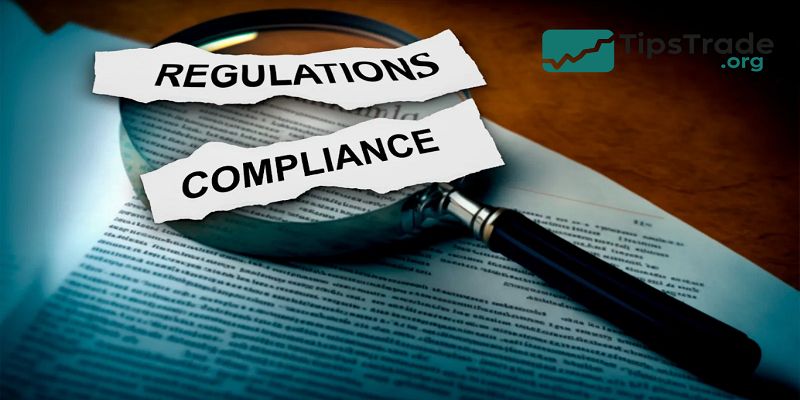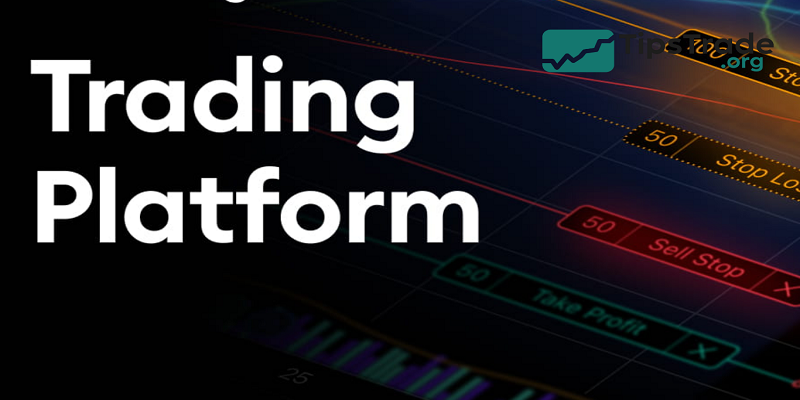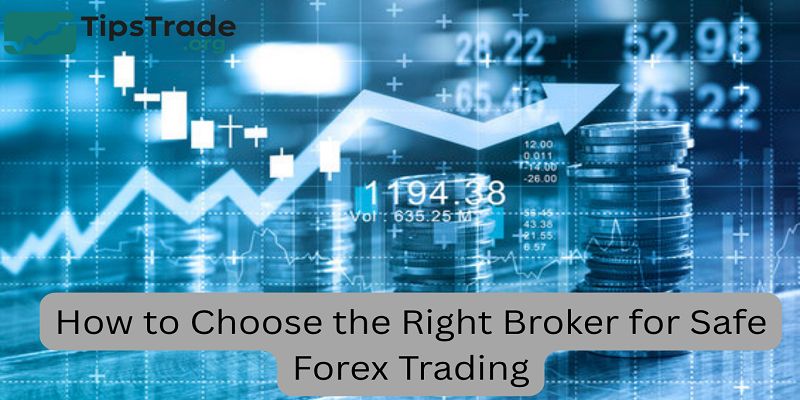Reliable Forex brokers ensures fair pricing, transparent fees, fast execution, and strong protection of client funds. On the other hand, choosing the wrong broker can lead to delays in withdrawals, high slippage, or even outright scams. This guide explores what makes a broker reliable, the key criteria to evaluate before opening an account, and a list of some of the most trusted brokers in the industry. Drawing from regulatory sources, trader experiences, and independent reviews, this article provides practical insights to help both beginners and experienced traders make safe decisions.
Criteria for Identifying Reliable Forex Brokers
Regulation and Licensing

- The foundation of broker reliability is strong regulation. Reputable brokers are licensed by well-known financial authorities such as the UK’s Financial Conduct Authority (FCA), the Australian Securities and Investments Commission (ASIC), the Cyprus Securities and Exchange Commission (CySEC), or the US National Futures Association (NFA).
- These regulators enforce strict rules on capital adequacy, risk management, and client fund protection.
- For example, FCA-regulated brokers must maintain segregated accounts, ensuring that client money is not mixed with company funds.
- This means if the broker faces financial trouble, clients’ funds remain safe. Similarly, ASIC requires brokers to provide transparent reporting and submit to regular audits.
- Traders can verify a broker’s license by checking the regulator’s official database.
- If a broker claims to be regulated but cannot provide a valid license number, it is a red flag.
Choosing a regulated broker significantly reduces the risk of fraud and ensures you have a legal body to appeal to in case of disputes.
Client Fund Protection and Segregated Accounts
- Reliable Forex brokers keep client funds in segregated bank accounts, separate from company operational money.
- This measure ensures that traders’ deposits are secure, even if the broker encounters financial difficulties.
- In some jurisdictions, brokers also participate in compensation schemes, such as the UK’s Financial Services Compensation Scheme (FSCS), which protects client deposits up to £85,000 if the broker fails.
- In addition, trustworthy brokers often collaborate with Tier 1 banks for fund storage, adding another layer of safety.
- For traders, this provides confidence that deposits and withdrawals will be processed promptly without unnecessary restrictions.
- Experiences shared by many traders highlight that brokers with proper segregation practices process withdrawals within 24–48 hours, while unregulated brokers may delay or deny requests.
Ultimately, fund protection is not just about safety—it reflects the broker’s professionalism and long-term commitment to its clients.
Transparency in Fees and Spreads
- One of the hallmarks of reliable Forex brokers is clear and transparent pricing.
- Traders should be able to easily identify spreads, commissions, and overnight swap fees without hidden charges.
- Reliable brokers publish detailed fee schedules on their websites and offer trading calculators to help clients estimate costs before entering a position.
- For example, some brokers provide raw ECN spreads as low as 0.0 pips but charge a fixed commission per lot.
- Others offer commission-free accounts but with wider spreads. A reliable broker will disclose these details upfront.
- Traders should also watch out for excessive withdrawal fees or inactivity charges, which are common tactics used by less reputable brokers.
- According to data from ForexBrokers.com, the average spread on EUR/USD among regulated brokers is around 0.6–0.9 pips.
- If a broker advertises unusually tight spreads but fails to deliver them in live trading, it signals potential unreliability.
- Transparency builds trust, and only reliable brokers are consistent in delivering what they advertise.
>>Read more:
- What is Forex? The Complete Guide for Beginners
- Important Economic Indexes Every Trader Needs To Know
- The Impact of Central Bank vs Forex – Understand to Invest Effectively
- News Trading Forex Strategies for Beginners
Execution Speed and Slippage Management
- Execution quality directly impacts trading performance.
- Reliable Forex brokers provide fast and accurate order execution with minimal slippage.
- This is especially important for scalpers and day traders, who rely on milliseconds to capture small price movements.
- Most reliable brokers use advanced execution models such as Straight-Through Processing (STP) or Electronic Communication Network (ECN) technology.
- These models route orders directly to liquidity providers without dealing desk intervention, reducing the risk of price manipulation.
- Independent tests show that top-tier brokers achieve average execution speeds under 100 milliseconds.
- Slippage, which occurs when orders are filled at a different price than requested, is inevitable during volatile markets.
- However, reliable brokers are transparent about their slippage statistics and often provide tools such as guaranteed stop-loss orders (GSLOs) to protect clients.
- In contrast, unreliable brokers may deliberately create artificial slippage to profit from traders’ losses.
Trading Platforms and Tools

Another indicator of reliability is the quality of the trading platforms offered. Reliable Forex brokers typically provide industry-standard platforms like MetaTrader 4 (MT4), MetaTrader 5 (MT5), or cTrader. These platforms are trusted worldwide for their stability, security, and advanced charting capabilities.
A good broker also enhances its platform with useful features:
- One-click trading and customizable charts.
- Integrated economic calendars and news feeds.
- Automated trading through Expert Advisors (EAs).
- Social and copy trading tools.
For example, brokers like Pepperstone and IC Markets are known for offering both MT4/MT5 and cTrader, giving traders flexibility depending on their strategies
Some brokers even develop proprietary platforms, but the key is that they must be intuitive, stable, and transparent in data reporting.
A reliable broker invests in technology because it directly supports client success.
Customer Support and Service Quality
- Trustworthy brokers understand that responsive customer support is vital. A reliable Forex broker provides 24/5 or even 24/7 multilingual support via live chat, email, and phone.
- More importantly, the quality of the service matters—support teams should be knowledgeable, quick to respond, and able to solve problems efficiently.
- Reviews on platforms like Trustpilot often highlight that reliable brokers process requests quickly, from account verification to technical assistance.
- For example, some brokers assign dedicated account managers to guide new traders through the onboarding process.
- Others provide extensive educational resources, including webinars, video tutorials, and market analysis.
Poor customer support is often a sign of an unreliable broker. If it takes days to receive a response or if the answers are vague, it signals potential issues in the future, especially when processing withdrawals or handling disputes.
Reputation and Trader Reviews
- Finally, reputation is one of the strongest indicators of broker reliability.
- Traders often share their experiences on forums such as Forex Peace Army, Reddit, or independent review sites. While no broker is perfect, reliable companies generally maintain positive reputations with consistent feedback about transparent practices, smooth withdrawals, and fair trading conditions.
- For example, long-standing brokers like IG, OANDA, and Saxo Bank have built reputations over decades of operation, serving millions of traders globally.
- On the other hand, newer brokers may still prove reliable if they are regulated and consistently receive positive reviews.
- It is wise to read multiple sources and look for patterns—if many traders report the same issue, such as withdrawal delays, it is a red flag.
A broker’s reputation is built over time, and only those who consistently treat their clients fairly earn the label of being truly reliable.
Top Reliable Forex Brokers (2025 Edition)

IG Group
- IG is one of the oldest and most respected Forex brokers, founded in 1974 and regulated by the FCA.
- It offers access to over 80 currency pairs with competitive spreads and advanced platforms.
- IG is known for its transparency, strong financial backing, and award-winning research tools.
- Traders often highlight its reliability in terms of order execution and withdrawals.
OANDA
- Established in 1996, OANDA is regulated in multiple jurisdictions, including the US, UK, and Singapore.
- It is known for offering transparent pricing with no minimum deposit requirements. OANDA’s platform provides detailed analytics, and it supports MT4.
- Many traders choose OANDA for its strong reputation, flexible account options, and dependable customer service.
Pepperstone
- Pepperstone is an Australian broker regulated by ASIC, FCA, and DFSA. It specializes in low-cost trading with raw spreads starting from 0.0 pips on ECN accounts.
- With MT4, MT5, and cTrader support, Pepperstone is a favorite among professional traders seeking high-speed execution.
- Its global presence and consistent reviews confirm its reliability.
Saxo Bank
- Saxo Bank is a Danish investment bank regulated by top-tier authorities.
- Although it requires a higher minimum deposit, it offers institutional-grade liquidity, professional research, and robust trading platforms.
- Saxo Bank is highly trusted among advanced traders and institutions due to its financial stability and transparency.
IC Markets
- Founded in 2007, IC Markets is another top choice regulated by ASIC and CySEC.
- It provides ultra-low spreads, lightning-fast execution, and strong support for algorithmic traders.
- Independent data shows IC Markets processes billions in daily trading volume, proving its reliability and popularity among retail and professional traders alike.
Comparison Table of Reliable Brokers
| Broker | Regulation | Platforms | Typical EUR/USD Spread | Minimum Deposit | Highlights |
| IG Group | FCA, ASIC | IG, MT4 | 0.6 pips | $0 | Oldest broker, advanced tools |
| OANDA | NFA, FCA | OANDA, MT4 | 0.8 pips | $0 | Strong regulation, flexible accounts |
| Pepperstone | ASIC, FCA | MT4, MT5, cTrader | 0.0–0.3 pips | $200 | Low-cost ECN trading, fast execution |
| Saxo Bank | FSA Denmark | SaxoTraderGO | 0.7 pips | $2,000+ | Institutional-grade services |
| IC Markets | ASIC, CySEC | MT4, MT5, cTrader | 0.1–0.2 pips | $200 | Popular for algorithmic trading |
How to Choose the Right Broker for Safe Forex Trading

Open a Demo Account
- The best way to test a broker’s reliability is by opening a demo account.
- This allows traders to practice with virtual funds, test spreads, and evaluate platform performance without risk.
- Many reliable brokers provide unlimited demo accounts.
Test Deposits and Withdrawals
- Before committing large funds, deposit a small amount and request a withdrawal. Reliable brokers usually process withdrawals within 24–48 hours.
- If a broker delays payments or requests unnecessary documents, reconsider your choice.
Monitor Trading Conditions
- Observe how spreads behave during volatile events, how orders are executed, and whether slippage is reasonable.
- A reliable broker maintains stable conditions, even in fast-moving markets.
Warning Signs of Unreliable Brokers
- No valid regulation or offshore-only licenses.
- Promises of guaranteed profits or unrealistic bonuses.
- Difficulty withdrawing funds.
- Aggressive sales tactics and unsolicited calls.
- Lack of transparency in fees.
Conclusion
Selecting a reliable Forex broker is the cornerstone of safe and profitable trading. From regulation and fund protection to transparent fees and quality platforms, the right broker provides the trust and stability every trader needs. By choosing regulated companies such as IG, OANDA, Pepperstone, Saxo Bank, or IC Markets, traders can focus on strategies and risk management rather than worrying about broker integrity.
Read more:

